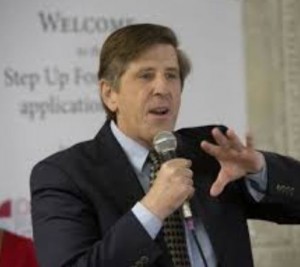
Here are some education choice stocking stuffers that would please me this holiday season.
Over the years, we have tried and failed to systematize educating the whole child. Our latest attempt includes focusing on social and emotional learning (SEL). While everyone seems to agree that integrating SEL into public education is essential, we’re making little progress in how to assess SEL skills. We need developmentally appropriate, reliable and valid measures of SEL skills. These assessments should generate formative data that are continuously available to educators, parents, and students.
The accountability systems in public education need to improve. We need less regulatory accountability and more accountability via consumer choice. The balance we have between regulatory and consumer choice accountability in Florida’s private school choice programs provides a good model for our district and charter schools. Florida doesn’t require its public schools to be accredited, which is a good first step, but public school principals should be empowered to hire whomever they want, provided the employees pass a criminal background check. Requiring principals to hire state-certified teachers often forces them to hire a less effective teacher. In Florida, we also need to return control of class sizes to schools. That we’ve put class size limits in our state constitution is crazy. A key to improving public education’s accountability system is ensuring families have the funds and information they need to access the best learning options for each child.
We need to get serious about lifelong learning. The days of graduating from high school, vocational training, or college with the knowledge and skills needed for lifelong employment are over. Public education needs to become the vehicle through which we operationalize lifelong learning. Everyone should have a permanent, publicly-funded Education Scholarship Account (ESA) to help fund their continuous learning. Even old guys like me.

As our new redefinED editor, Matt Ladner, continually reminds us, there is a demographic tsunami heading toward Florida. The combination of aging baby boomers needing more medical care and young children flooding into our schools is going to crush Florida financially. We need to start preparing now. Our new governor needs to get with legislative leaders and set up a bipartisan process to begin planning for how we’re going address this challenge. One solution is embracing public education delivery models such as virtual education and community/private schools that require less government-funded capital investment. Removing the class size amendment from the Florida Constitution would help here also.
I miss the days when Florida Democrats were engaged in innovative efforts to improve public education. I was fortunate to work on education reform initiatives with Democratic leaders such as Bob Graham, Betty Castor, Buddy McKay, Lawton Chiles, and my friend and neighbor Doug Jamerson. We didn’t always agree, but I appreciated their willingness to challenge the status quo and put the needs of children — particularly disadvantaged children — first. Being out of power often causes a party’s governing instincts to diminish. They become the party of no instead of the party of solutions. Public education desperately needs bipartisan solutions to its vexing problems. It’s common knowledge that opposing education choice contributed to the Democrats losing the recent governor’s race in Florida. It’s in the party’s best interest, but more importantly it’s in public education’s best interest, for Democrats to rediscover their drive to create a public education system that works for everyone.
Civil Rights and education choice legend, Dr. Howard Fuller, made a powerful case at Jeb Bush’s recent ExcelinEd education reform conference in Washington, D.C., for the need to connect education reform with improvements in health care and housing. I’d like to add criminal justice reform to Dr. Fuller’s list. Congress just passed some timid improvements to our country’s highly dysfunctional criminal justice system. Much more needs to be done. I don’t know of any institution in our country that does more to perpetuate generational poverty than our criminal justice system. From cash bail, to the stacking of charges to strengthen prosecutors’ leverage in plea bargaining, to sentencing biases, to extended probations that almost guarantee returning to prison, to the confirmation bias that pervades the system and assumes a defendant is guilty until proved innocent — which almost never happens because most cases end in a plea bargain — the system is stacked against low-income people. Criminal justice reform must occur in parallel with education reform if we’re going to succeed in reducing the disparities in quality of life that are explained by race and class. The podcast Serial recently did a deep dive into Cleveland’s criminal justice system. Prepare to be appalled by what you hear, but these stories are typical of what’s happening every day in communities across America.
Finally, let’s respect the importance of linguistic precision and start using “education choice” instead of “school choice.” I understand that school choice is a term most people are familiar with, which is why many still use it. But it’s imprecise and often inaccurate. Choice in public education occurs between schools, within schools and classrooms, and outside of schools. Families using ESAs, for instance, often spend their funds on education products and services beyond schools. We mislead and disrespect our readers/listeners when we ignore this reality and pretend all education choice is school choice.
I hope our redefinED readers/listeners have a safe and joyful holiday season. Thank you for joining us on our quest to help public education fulfill the promise of equal opportunity.
Editor’s Note: This is the fourth in a series of posts where various members of the education choice world share an #edchoice wish. For Monday’s post, CLICK HERE.
COMING TOMORROW: Step Up For Students’ Geoff Fox explains why one-size-fits-all didn’t fit him, and why he would have benefited from education choice.


